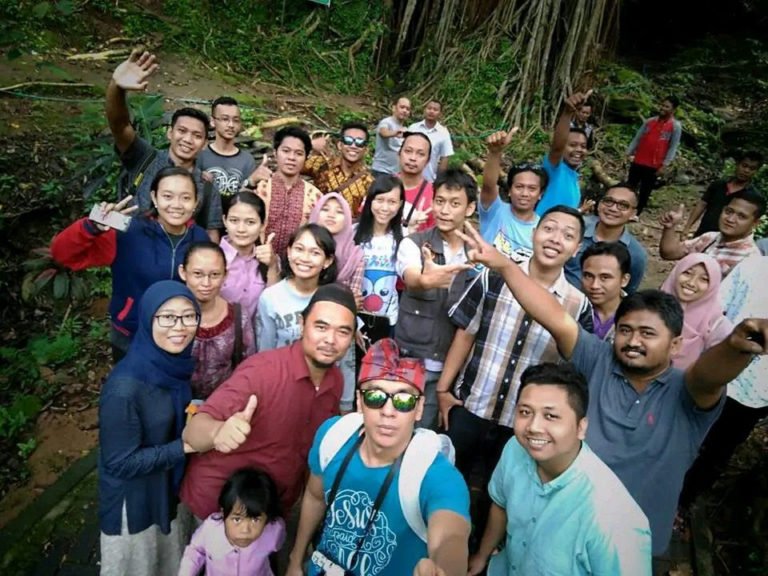5: United in Protest
Indonesia
A Climate Pollinator story by Sierra Ross Richer
For the Gereja Injili di Tanah Jawa (GITJ) congregation in Jepara, Indonesia, environmental issues weren’t at the forefront of the church’s agenda, until a nuclear power plant was planned to be built next door.
“This happened in Jepara around 2003,” said Danang Kristiawan, pastor of GITJ Jepara and a lecturer at the Wiyata Wacana Theological Seminary in Pati. The government’s proposal to build a nuclear power plant near the city created a complicated issue, but it led to an unexpected and, Danang believes, hopeful result.
The book Drawdown: The Most Comprehensive Plan Ever Proposed to Reverse Global Warming published in 2017 ranks nuclear power as the 20th most effective solution to climate change because of the amount of greenhouse gasses it could keep out of the atmosphere.
But, nuclear power comes with risks. These include environmental destruction and contamination during the mining of necessary metals, harm to aquatic organisms that are sucked into cooling systems, and radioactive leakage during the hundreds of thousands of years it takes nuclear waste to decay.
The Fukushima nuclear disaster that forced over 150 thousand in Japan to evacuate due to escaped radiation in 2011, showed that natural disasters like earthquakes and tsunamis can also be catastrophic for nuclear power plants.
The location chosen for the Indonesian plant placed it on a dormant volcano, Mount Muria, located to the West of the coastal city of Jepara.
Realizing the risks to those living nearby if the power plant were hit by an earthquake, tsunami or volcanic eruption, Danang said, “Representatives of religious communities in Jepara, namely Islam, Christianity, Catholicism, Hinduism, and Buddhism met to discuss this issue from the perspective of their respective faiths.”
Together they planned a demonstration to protest construction of the plant. Representatives from each of the religious groups marched the 10 kilometers from the proposed construction site to the city center.
In 2015, after years of opposition, the government permanently halted the project. Plans remain to build a nuclear power plant somewhere in Indonesia in the next couple of decades as part of the nation’s plan to reduce carbon emissions and switch to more renewable energy sources.
But for those involved in the protests, another outcome remains: The connection formed between the different religious groups in Jepara.
“This is important for us,” Danang said. He hopes the group will work together to find solutions to climate change in the future.
“If we want to get movement in creation care in Indonesia,” Danang said, “I think from a religious perspective, we need to work together as a community.”


